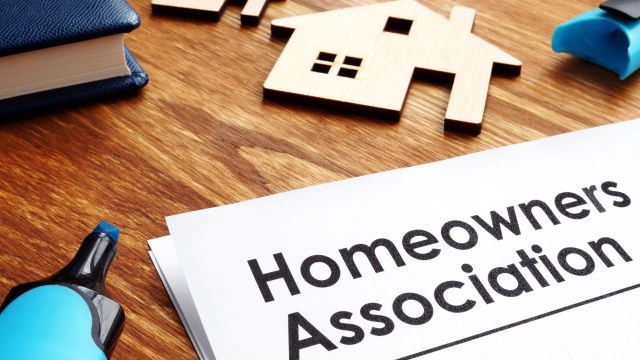The world of homeowners' associations is constantly in flux, and as we embrace the new year, it's essential to stay up-to-date on the latest legislative shifts and updates that may impact your residential experience. Whether you're a homeowner seeking clarity on your rights, a board member navigating the governance of your community, or a community manager tasked with ensuring compliance, this blog is designed to be your guide.
Read on as we go into the intricacies of the most recent developments, exploring how these changes may shape the dynamics of community living.
California
Virtual Meetings
The recently enacted Civil Code Section 4926 permits HOA board meetings to be conducted entirely in a virtual format. To facilitate participation, the board must provide clear instructions, including a designated telephone number and email for assistance in joining the meeting. In this virtual setting, there is no requirement for a specific physical location for attendees.
During board votes, directors are obligated to express their decision through a roll call, wherein each director verbally states "yes" or "aye," "no" or "nay," or declares an "abstain." It's important to note that this new law exclusively pertains to board meetings and does not extend to membership meetings.
Accessory Dwelling Units (ADUs)
- Under AB-1033, ADUs can now be sold separately from the primary residence on the property.
- Under AB-976, property owners can now rent/sell their ADUs without living in the primary residence on the property.
Meeting Quorum
Should the HOA communicate beforehand that the quorum might be lowered due to insufficient member participation, the board reserves the right to convene another member meeting, provided it occurs at least 20 days after the initial meeting that lacked a quorum. For this subsequent meeting, a quorum of 20 percent is sufficient. The board is required to announce the reduced quorum meeting at least 15 days before the scheduled date.
Small Claims Limit Increase
This change increases the cap for small claims actions to $12,500 per claim, enabling homeowners to pursue justice in small claims court for larger amounts without the necessity of hiring an attorney.
Illinois
Public Act 103-0486 (Maintaining Roads)
This act allows HOA boards to engage highway commissioners for road maintenance and repairs. This provision specifically pertains to HOAs that make up more than 50% of their road district or township population.
Electrical Vehicle Charging Act
Newly built single-family or small multifamily residences with designated parking spaces are now required to incorporate the necessary infrastructure for at least one parking space per unit, supporting electric vehicle charging. In the case of large multifamily residential buildings, all of their parking spaces must be equipped for EV charging.
For existing homes or buildings, residents can request EV charging infrastructure installation, but they are responsible for covering the associated construction costs. Failure by associations to comply with these regulations may result in a potential fine of up to $1,000.
Public Act 103-0161 (Temperature Guidelines)
Specifies temperature requirements for heating and cooling in HOA communities with age restrictions (55 and older).
North Carolina
House Select Committee (House Bill 311)
The committee is comprised of nine (9) members tasked with reviewing planned communities and condominium associations along with the corresponding governing laws. The committee is allotted approximately one year to fulfill its responsibilities, with a final report expected on or before March 1, 2024.
Texas
House Bill 614 - HOA Fines
This legislation mandates that homeowners association policies incorporate broad classifications of restrictive covenants, along with a fine schedule for each violation category and details about the hearing process.
Additionally, every association is required to provide each property owner with a copy of the policy. This can be achieved by posting the policy on a website managed by the association or its representative, ensuring accessibility to members. Alternatively, the association can choose to annually deliver a copy of the policy to members through hand delivery, first-class mail, or email. The policy must also be accessible on any publicly available websites, if applicable
House Bill 886 - Property Liens
Although this bill went into effect at the end of 2023, it’s an important one for all Texas homeowners who live in HOA communities to keep in mind. House Bill 886
House Bill 886, effective September 1, 2023, introduces new prerequisites for property assessment liens in Texas. A community association must issue two delinquency notices to the HOA member. The first notice, sent by first-class mail or email, is followed by a second notice sent by certified mail with a return receipt request, not earlier than the 30th day after the first notice.
The association is prohibited from filing an assessment lien before the 90th day after sending the second delinquency notice. Note that these requirements exclude associations dealing with property owners covered by the Servicemembers Civil Relief Act.
Final Thoughts
The evolving landscape of HOA laws in 2024 has brought significant changes that impact both homeowners and associations. From new regulations on short-term rentals to enhanced transparency requirements, it is vital for everyone to stay informed and adapt to the shifting legal environment.
We hope this summary encourages you to reach out to your association attorney for more details. We are not attorneys, and this summary isn’t a complete listing of how the laws in your area may have changed in a way that impacts your community.
With proper knowledge and awareness of the evolving legal landscape, both residents and board members can work together toward maintaining a positive living environment.


